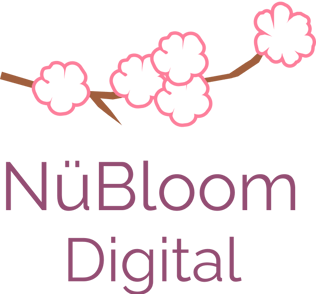Entrepreneurship, whose world is it anyway?
Entrepreneurship is our world because we're building our futures, not just participating in them. Here's my call to action. Fund Women. Fund gender-diverse founders. Mentor minoritised communities. And definitely get out of our way when we're leading.
Maya Xian
4/4/20255 min read


Let’s think about business for a second. What about businessmen. Is anyone else still thinking about a default of men in suit and ties, offices, briefcases, probably a with a coffee in hand. What about businesspeople? What about businesswomen? What are the stereotypes? Business has never been so exclusive and so binary that only men can fit into that criteria. There have long been queer creatives, gender-expansive and non-binary entrepreneurs who within their own lives have worked outside of the 'default' and worked hard to sustain their own identities. Inclusive of breaking through the traditional conventions of a 'business norm' and so many of these people are undervalued and overlooked in the traditional systems. They have always been part of the entrepreneurship narrative as forward thinkers, leaders and creators, yet simultaneously invisible in mainstream conversation and excluded from origin stories and the perception of what it means to 'be in business'.
But actually let’s talk about business as a Women’s World. We all know a strong woman. I know you do. But the recent internet saying is correct, have you ever met a well-rested woman? I’m sure every one of you know a Woman who did Avon before or something like Avon. Or maybe they’d started a blog. Or looked after someone’s children. Women are natural hustlers. If we think about the way that modern day pyramid schemes work, they offer “work from home” “Work on your own schedule” “be your own boss” and this is exactly what most businesses entail in their starting phase. The only difference is that starting a business does not advertise the attractive and lucrative offer of “making a passive income”. Being your own boss and working from your own schedule is exactly what attracts Women. We all want financial independence. Pyramid schemes know that and they truly understand how much Women are under-valued, knowing that Women want to be in the workplace, not only to achieve financial freedom but because one income isn’t enough to support a family anymore, yet they often need to be able to stay at home or be flexible around their families. Through love-bombing their victims, these ‘companies’ reward their soft skills with praise, encouraging them to grow in their social networks, reminding them that they too can be high achievers.
Though a pyramid scheme is not a business, more typically, scams and ponsi schemes. Their models reflect that they’re targeting products to Women to recruit Women. They understand the power of faux-empowerment, because they know and understand the power of a Woman workforce, better yet, they understand the importance of supportive’ communities to benefit from them. They understand that Women are social connectors, requiring low start-up costs. It isn't just about heteronormative, cis-gender Women either. Queer, Trans and Non-Binary people and minoritised communities are often pushed out of the workforce and are often left to navigate structural inequality through finding alternative routes to income, seeking community, empowerment and flexibility but inheriting traits such as empathy, ambition, resilience, relational intelligence. The traits that make someone vulnerable to these schemes are the same traits that can make incredible business leaders. Could you imagine what would happen if there were more genuine initiatives to empower and support people inclusive of gender?
Of course, it’s not just Women or minoritised communities that fall into pyramid and ponsi schemes or scams. Men fall into scams all of the time, buying into 'get-rich-quick' schemes or financial investment scams. But the key difference is that Women, and people looking for alternative routes to income, are sold dreams of financial freedom and independence and community and support. By contrast, Men are often sold on the ideas of status and power rooted in ego-boosts. Yet in Women, Queer, Trans and Non-Binary people, and people who are pushing past the default and traditional mold, become the traits that make them vulnerable and exposed to pyramid schemes. From the empathy, the ambition and drive, being unafraid of the grind, capable of not just social networking but socially connecting, eve working well under pressure.
Wider industries also target Women specifically as a valuable demographic. Women have also consistently saved the music industry from the recession in sales. From boy-bands to K-Pop to Taylor Swift, Beyonce, Rihanna and Adele. Women are cultural economists and market makers. Women drive 70-80% of consumer purchasing decisions and entire industries are carefully curated around the psychology of why Women make these consumer habits. Not to mention that Queer communities, especially Trans and Non-Binary creators have also set trends that industries later water down, misappropriate and commodify. LQBTQIA+ people are often the blueprint of cultural shifts and shape trends from defining aesthetics to influencing how markets feel and respond to identity and authenticity, yet rarely benefit on the business side of things. Designs in industry then follows the life-cycle and psychology of Women. From girls to Women, industries predate on our insecurities and aspirations, causing social ripples to influence consumer behaviours or to even creating viral trends and we see this in industries concerning beauty, wellness, fashion, diet, home decor, parenting, weddings. All of these industries rely on consumer habits of Women but are yet undervaluing Women's labour and rarely promoting them to leadership positions and so what we've created is a economic reliance on Women's consumer power with much less input from Women ourselves. Even self-care became a full-time job with full-time expenses.
Women have always been market makers and we already hold the markers for business success, between drive, ambition and intuition. All of our apps, Instagram, Tik Tok, even Pinterest and X garner much more engagement from Women than they do from Men. Despite research showing that the user base of social media is definitely top heavy with a 51% male user base and a 48% female user base with only 1% for other gender diverse people, these studies have concluded that Women are significantly more likely to use and engage on social media than Men are.
We've been building our 'brands' for years for free, social media has essentially taught us how to sell our lives to others in highlight reels and desirable small-medium content forms convincing others of our lifestyle choices. We've been investing in our own emotional labour, showing who we are, what we're about, creating aesthetic narratives and building communities and though we've been convinced it was vanity, in the business world, we'd call that strategy. Viewing it in this way and taking into account the work, the emotional and invisible labour that Women and gender-diverse people have already been doing are the foundations of entrepreneurship that have been exploited and not invested in. We weren't calling it entrepreneurship, we were calling it 'buying into fads or trends', 'oversharing', 'obsessed with aesthetics' or even 'just a phase'. We were so quick to dismiss it as superficial vanity, but we, as Women, we as people trying to break social conventions, were setting the cultural agenda and being economists in our own right. We didn't get given the title of entrepreneurship, we didn't receive the funding or the ownership. Entrepreneurship is about owning your own time, your own story and your own future. And we've already been building that, and we've already been building the world around us.
Imagine what we could do if the world around us was being build to support Women and people who push past the gender-binary. Entrepreneurship is just as much our world because we're building our futures, not just participating in them. Here's my call to action. Fund Women. Fund gender-diverse founders. Mentor minoritised communities. And definitely get out of our way when we're leading.
